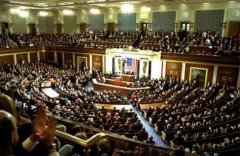U.S. Admiral Admits Attempt to Assassinate Qaddafi
June 24, 2011
By Josh Rogin
FP
June 24, 2011
The top U.S. admiral involved in the Libya war admitted to a U.S. congressman that NATO forces are trying to kill Libyan leader Muammar al-Qaddafi. The same admiral also said he anticipated the need for ground troops in Libya after Qaddafi falls, according to the lawmaker.
House Armed Services Committee member Mike Turner (R-OH) told The Cable that U.S. Admiral Samuel Locklear, commander of the NATO Joint Operations Command in Naples, Italy, told him last month that NATO forces are actively targeting and trying to kill Qaddafi, despite the fact that the Obama administration continues to insist that “regime change” is not the goal and is not authorized by the U.N. mandate authorizing the war.
“The U.N. authorization had three components: blockade, no fly zone, and civil protection. And Admiral Locklear explained that the scope of civil protection was being interpreted to permit the removal of the chain of command of Qaddafi’s military, which includes Qaddafi,” Turner said. “He said that currently is the mission as NATO has defined.”
“I believed that we were [targeting Qaddafi] but that confirmed it,” Turner said. “I believe the scope that NATO is pursuing is beyond what is contemplated in civil protection, so they’re exceeding the mission.”
Later in the same briefing, Turner said, Locklear maintained that the NATO mission does not include regime change. “Well, certainly if you remove Qaddafi it will affect regime change,” Turner said that he replied. “[Locklear] did not have an answer to that.”
Locklear also said that, upon Qaddafi’s removal, ground troops would be needed during the immediate period of instability, Turner said. In fact, Locklear said publicly that a “small force” might be necessary following the collapse of the Qaddafi regime in a May 30 conference in Varna, Bulgaria.
Turner joined hundreds of other lawmakers in voting against authorizing the Libya war on Friday morning. The authorization resolution was defeated 123 to 297. A subsequent vote on a bill to defund the Libya mission also failed 180-238 .
Turner has been opposed to the Libya war from the start and even introduced a resolution opposing the effort. For him, Friday’s chaotic Libya debate was a direct result of the administration’s neglect and disrespect of Congress throughout the debate over the mission.
“The president hasn’t come to Congress and said any of this, and yet Admiral Locklear is pursuing the targeting of Qaddafi’s regime, Qaddafi himself, and contemplating ground troops following Qaddafi’s removal,” Turner said. “They’re not being straightforward with Congress… It’s outrageous.”
Ignoring Congress allowed the administration to ignore the large, looming questions about the Libya war that congressmen are asking — especially today, as another vote to defund the mission looms before the House next month, when the defense appropriations bill is set to be debated. But if the House does vote to defund the mission, Turner said, Obama will have nobody to blame but himself.
“I believe that this administration has handled this so badly, that if they had come to Congress, I think they would have done more of their homework. They have not done a full assessment of their mission, its scope, or the consequences if they’re successful. Congress would have required that,” Turner said. “Now it’s a little late.”



 information that indicates the Obama Administration may have funneled more than $10 million in taxpayer funds into the project.
information that indicates the Obama Administration may have funneled more than $10 million in taxpayer funds into the project.